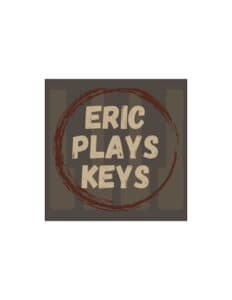
As someone who has spent years owning a piano and years with a keyboard, I’ve learned a lot about the pros and cons of owning a real, acoustic instrument. Making this purchase can be a difficult decision, so I’ve assembled my thoughts and experiences below to help you determine what’s best for you!
Buying a piano is an amazing investment for some people, and not necessary for others. It’s essential to consider your budget, space in your home, genre(s) of music, and proximity to neighbors. Also, factors including musical experience, commitment, and personal preference should be accounted for.
There’s definitely a lot to unpack here. For a deeper dive into the decision making process, read on!
Things to Consider Before Buying a Piano
I’ve created the following decision tree that covers all the important questions to ask yourself:

- Budget: If you’re pushing your budget to make this purchase, it’s best to hold off and continue saving. You don’t want to feel guilty or stress yourself out – owning a piano is supposed to make you happy. I’m planning on spending a few more years in saving mode before buying a Yamaha grand piano – I’ll pull the trigger only if and when I’m financially comfortable. I wrote an article about how much you should spend, if you’re wondering what you should consider when defining your budget.
- Space: Definitely take some measurements of your living space. Pianos can be very large, and you’ll want to ensure that you’re leaving enough room for comfort. I’ve lived in some pretty small apartments – a piano would have been a disaster and taken up most of the living space.
- Genre: If you are serious about playing or learning classical music, in my opinion a piano in your home is a must because you’ll need regular practice developing your phrasing and touch. For other genres that have less emphasis on technical proficiency, having an acoustic piano may matter less. I play mostly jazz and pop, so I can get by on a nice keyboard even though I prefer a piano. Back in my classical days, an acoustic piano was a must for me.
- Neighbors: If you share a wall, or can hear everything your neighbors are doing, chances are you’re going to get complaints when you play. The best case scenario is that you’ll have to limit your playing to certain hours of the day to avoid conflict, which can be frustrating. It’s best to go with a keyboard and accompanying volume knob in this scenario. Growing up, even my own family had to limit my playing hours so I didn’t drive them crazy. Once I got a keyboard, this problem was solved.
- Experience and Commitment: If you’re looking to learn piano or relatively inexperienced, no need to make a big purchase just yet! Buy a cheap keyboard, or find a local studio or practice room to see if playing piano is something you enjoy. If you’re experienced and you know you’re in it for the long haul, I’d recommend buying a nice piano and considering it an investment in yourself.
- Preference: If you’re still not sure, just follow your heart! Do you prefer to play a real piano, or are you indifferent? Often times it’s easier to have others confirm your feelings on the subject, but it’s your money and your life! Try to do what makes you happy. Personally, I much prefer a piano over keyboards, and I’ll get one eventually even though I have a great keyboard already.
Alternatives to Buying a Piano
Digital pianos and keyboards are great alternatives to buying a piano for many players, as they are cheaper, more portable, and smaller. These alternatives may not sound and feel as good as a real piano, but the options at higher price points can get close. Another alternative to buying a piano is to investigate local studios and practice rooms for use.
As an example, I currently play a Nord Stage 3, and although it wasn’t cheap, it fits easily in my apartment and I can play it anytime with headphones. You don’t have to get a Nord though – Yamaha, Casio, and Korg have tons of options at all price points. When I wanted to practice on a real piano, I used the wide open practice rooms at my school. You may not have access to open rooms, but in some cases you will be able to rent practice time. Either way, you can get creative to find your desired practice time on a real piano, at a fraction of the cost.
Buying a Piano on a Budget
Pianos are expensive purchases, but deals can be found on used pianos by searching locally. These options may be found by visiting local music and piano stores, by searching online listings, and by word of mouth.
The first piano I owned was sold to us from another student of my teacher, who was looking to upgrade and offload his current piano quickly. Lucky as it may be, we had put the word out to my teacher that we were on the market and he was looking for us as well. So tell your teacher if you have one, or stop by local piano stores and have them keep eyes out for you. Also check Craigslist and other forums in your area – you may get lucky!
How to Choose Your Piano or Alternative
In my opinion, you really should demo any piano or keyboard before purchasing, and see if you connect with the instrument. If buying a used piano, schedule time to come to the seller’s house and test it. If considering a keyboard, contact local music stores to see if they have the keyboard onsite. It’s hard to list exact criteria to think about, so I rely on the ear test and the finger test – spend time playing the instrument and listen to your gut! Only you will know if you like the piano or keyboard. In my experience, don’t overcomplicate the buying process with specifications, prices, brands, or whatever else you may read about. Love the way it looks, feels, and sounds? Imagining it in your home already? Affordable? Just go for it.
